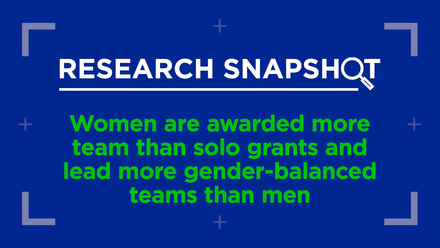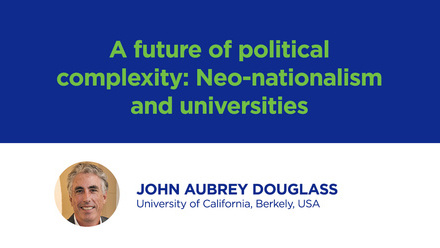Overcoming loneliness in a people-centred career

Comprehensive internationalisation of higher education and Internationalisation of Higher Education for Society (IHES) aim to involve all students and staff, as well as linking the higher education institution to the wider society both nationally and globally. Seeing the big picture, taking a whole-institution approach to internationalisation and linking it to all areas it affects, requires systemic thinking, agility and effective change management.
In most higher education institutions only one, or at most a few, people can have such a holistic bird’s-eye view as it simultaneously requires both expertise in internationalisation and access to information and power to affect the whole organisation. Ironically, in the midst of complex interdependency within and outside the organisation, this can be a very lonely role.
Our love for internationalisation connects us
International education is a very people-centred field, yet it is not uncommon for professionals undertaking this work to feel isolated within our respective institutions. For example, you might be an international officer with colleagues who work exclusively with mobility, or the only administrative staff member working with internationalisation in an educational department. You might be the only representative in a management team considered responsible for internationalisation or a teacher alone in your enthusiasm for internationalising the curriculum in your degree programme or faculty. You might be responsible for marketing and international student recruitment, mobility advising, alumni affairs or student experience, feeling that your institution should focus a lot more on internationalisation but lack the tools, access or authority to make it happen.
Ironically, in the midst of complex interdependency within and outside the organisation, this can be a very lonely role
Regardless of where you are or what you do, you might feel lonely in your love for internationalisation and your conviction of its importance for the future of our societies and the world. The good news is that you are not alone, as there are lots of us who feel the same! Finding ways to forge meaningful connections with supportive peers, even (or especially) when we find ourselves in isolation in our roles, is a critical aspect of career development for international education professionals. Luckily, there are a number of concrete steps that can be taken to alleviate this kind of professional loneliness.
No one can do it alone
Comprehensive internationalisation is a massive change process and we all face resistance to change. Change agents therefore need to be not only highly driven, competent and knowledgeable, but also resilient and supported by management. These factors are crucial in getting all stakeholders onboard to genuinely embed internationalisation processes throughout the operations of the institution. Doing this work alone is nearly impossible, making peer support invaluable. If this kind of support is not available in your institution, the answer may be to look outside your organisation for the information, support and understanding that you so desperately need to succeed in your endeavours.
Doing this work alone is nearly impossible, making peer support invaluable
For example, I am the only one in my particular role at my institution; my colleagues all have different (although many related) tasks and fields of expertise. So, two years ago, I took the step to attend the EAIE conference in Helsinki, where, for the first time, I found myself surrounded by several thousand like-minded people who all understood me and the context I work with. The shared knowledge and experiences offered by events like these become a glue that binds colleagues together across institutions and countries. This is an understanding I cannot get from my husband at home or from my colleagues at work. But I can get it internationally and even globally by finding the right colleagues through networks, events and social media.
Sense of belonging
Our sense of belonging is manifold as we belong to a range of communities simultaneously, like family, neighbourhood, workplace etc. But we might sometimes underestimate the positive psychological and emotional effects of belonging to a clearly defined professional community, where we can use specific terminology without explaining it, recognise the names of influential people in the field and share experiences from common situations, events and meetings.
Such professional communities offer a safe space where we can complain about obstacles we face, celebrate our successes and support each other in finding ways forward through national regulations, institutional policies and lack of resources. In such communities, it is easy to breathe, to speak your mind, to build strength and resilience. They also provide sources of inspiration, motivation and not least, professional networking and possibly career development. But maybe most importantly, belonging to such communities helps you to not feel alone in your job or career.
Finding your tribe
How then to find your tribe? Some of the advice I share with students when I talk to them about sustainable career development, soft skills and resilience in order to prepare them for the future of education and work may be useful to international education professionals as they navigate their own career trajectories.
1. Network, network, network
A complex world operates increasingly in systems and networks, and in order to cope and to be successful in your job, you will need to invest some time and energy to find and engage with peers and stakeholders from a wide range of fields, positions and backgrounds. Once you find the networks and communities (on- or offline) most relevant to you, tap into them bravely. Most people are more than willing to help if they can. Start by scratching someone else’s back first, eg by providing connections, volunteering or mentoring.
2. Step out of your comfort zone
Try something new and reflect on it afterwards. Identify the decision-making skills and the personal traits it took to take the leap and evaluate the results of that endeavour. Put into words what you learned, and practice and share that experience with others through storytelling. This will help you identify your interests and strengths, and might open doors to new connections and adventures.
3. Be inclusive
It is always harder to ask to be let into a group, than to ask someone to join a group you are already in. Be generous with your networks, invite colleagues to participate and reach out to those who might still be on the outside looking in. It will benefit both of you.
4. Ask for help
Not being able to cope alone is at the core of the challenges we face in this ongoing pandemic, and now is the time to learn how to ask for help. Being vulnerable through the process of asking for help opens us up for possible cooperation, and allows for the sharing of knowledge and contacts by the ones who respond. Next time, it might be their turn to ask for help and for someone else to share.
Not only coping, but thriving
In these unusual times, it is more important than ever to feel a sense of belonging regardless of where you are or what you do. We might be surrounded by people, yet feel alone. Taking care of ourselves, personally and professionally, is connected to taking care of each other. It can also ensure that we lead by example and show our students how to not only cope, but thrive, in these new circumstances.






